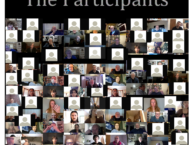These courses are part of THE NEW COMMONS — an exciting new initiative at the Higgins School supported by the Mellon Foundation that integrates our ongoing dialogue symposia with faculty fellowships and team-taught courses.
The courses can be found under the “Higgins School” on the registrar’s course listings. Each of the New Commons courses has an HS course number and carries attributes from the home departments of the two participating faculty members.
The Higgins School will also offer three sections of dialogue seminars — 1/2 credit classes for students interested in developing a deepened understanding of dialogue while exploring the symposium theme. Starting in fall 2013, these courses will be credit/no credit.
NEW COMMONS TEAM-TAUGHT COURSES: FALL 2013
HS 114: FREEDOM’S BATTLE: THE QUEST FOR NATIONAL SELF-DETERMINATION IN THE AGE OF EMPIRE (1914-2014)
Professors Doug Little (History) and Kristen Williams (Political Science)
Lecture/Discussion T/F 2:50-4:05
In 1923, Mohandas K. Gandhi published Freedom’s Battle, a collection of his political writings that had first appeared in the journal Young India during the preceding decade. A staunch critic of British imperialism and a firm believer in the power of nonviolence, Gandhi prophesied that by the end of the 20thcentury all the peoples of Asia, Africa, and the Middle East would secure their freedom from Western control and achieve national self-determination. This course will evaluate the accuracy of Gandhi’s prophecy, with special emphasis on means and ends: which approach—civil disobedience and moral suasion OR civil war and political violence—was more successful? Did the tactics adopted by the imperial powers affect the struggle for self-determination? Using historical and contemporary case studies of self-determination movements, several themes will be explored, including the role of great powers (both colonial and non-colonial powers), and the emergence and evolution of the norm of self-determination (and the link to self-determination/nationalist liberation movements and the creation of new states from former colonies). We will also explore the link between nationalist liberation movements and women’s liberation movements, related to the intersectionality of class, race, sex, ethnicity, religion, and gender. (Satisfies the Global Perspective)
HS 202: SUBURBIA AND THE RHETORIC OF PERSONAL FREEDOM
Professors Deb Martin (Geography) and Kristina Wilson (Art History)
Seminar F 9:00-11:50
Freedom of the open road, away from the bustle of the city; proximity to nature and the freedom to roam; freedom from history and family ties. These are images and themes related to American suburbanization. Yet twentieth century American suburbs were also decried for their conformity, their “cookie cutter” design, and oppressive gender norms. The purpose of this course is to interrogate the transformations of twentieth century American life through the ideologies of freedom and modernity as expressed in the suburbs. We do so by examining, first, the social, political, and economic processes of suburbanization; and second, emerging identities embodied in the architecture of the suburban home and the designed commodities that filled it. This upper-level seminar will require students to analyze critical and historical texts as well as domestic objects and architectural design. Students will also conduct primary research on the suburban environment of Worcester.
HS 204: FREEDOM DREAMS: GLOBAL FREEDOM STRUGGLES FROM DECOLONIZATION TO THE PRESENT
Professors Stephen Levin (English) and Ousmane Power-Greene (History)
Seminar R 2:50-5:50
The contemporary philosopher and activist Slavoj Zizek has recently said that “we feel free because we lack the very language to articulate our unfreedom.” This course examines the global freedom struggle against colonialism, white supremacy, and European hegemony from the 1930s to the present. Students will explore political struggles against colonial powers, as well as the ways in which artists, writers, and entertainers used creative expression in order to counter the constrictive institutions, laws, and cultural practices that helped shape and articulate the European colonial order. We will take as a point of departure discussions of freedom and “unfreedom” in the intellectual movements of the Enlightenment era during the 18th century, and then focus our attention on critiques of freedom in African-American and non-European contexts in the twentieth and twenty-first centuries. In disparate movements such as a the struggle for racial equality and civil rights, the emergence of “third world” nations from the colonial rule, and the recent rebellions of the Arab Spring, the notion of freedom is subject to radical critiques and creatively reimagined. Working from an interdisciplinary perspective, our discussions will draw on the history of social movements, the writings of “third-world” intellectuals, and various genres of art and literature.





